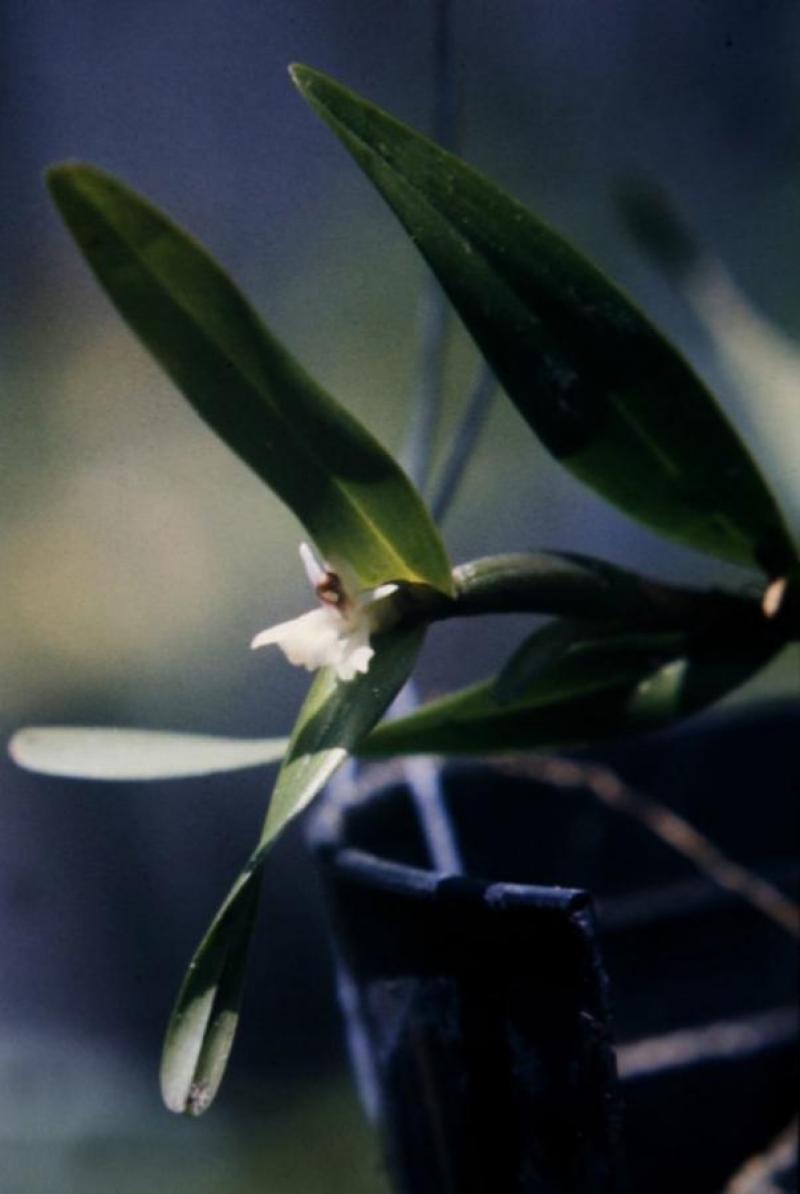Scaphyglottis modesta
Also known as: The Modest Scaphyglottis or Tetragamestus antillanus Scaphyglottis striolata Ponera striolata Tetragamestus modestus in the subfamily: Epidendroideae
Native to: Guyana Mato Grosso do Sul - Brazil Provincia de Limon - Costa Rica
General Information
The Modest Scaphyglottis is a warm to hot growing epiphytic orchid belonging to the sub family Epidendroideae native to Guyana, Brazil and Costa Rica.
Plant Description
Grows to 50cm. Each new growth has numerous leathery erect, lance shaped, oblong shaped leaves that grow to 0.2-18cm long. Pseudobulbs grow to 0.2-30cm
Flowers
Numerous blossoms appear during Winter and Spring
Blooming Season
- Spring
- Winter
Substrate(s)
- Coarse
Care Notes
These orchids like to be watered regulary, especially during warm weather, and prefer a well draining mix or also do well mounted, provided they can be watered daily or even many times a day.
These are quite a forgiving orchid, there are no special requirements to get this orchid to flower, just good care and consistent conditions. Larger plants may be more fussy and can react poorly to change; a poorly timed repotting, a pest infection or an unusually hot day can set them back for a couple of years. However, even plants that have been treated poorly can thrive, and if they are set back they often recover much stronger then they would otherwise be.
Climate
Grows at low to high elevations. Rainfall ranges from 71mm to 180mm per day, heaviest in August and lightest in March. Humidity ranges from 82% to 94%, highest in May and lowest in April. Temperature ranges from 18C to 27C, highest in June (21C to 27C) and lowest in January (18C to 26C).
Watering
These orchids prefer a wet-dry cycle between waterings, they should be watered frequently but only when the moisture is approaching dryness, where the pot feels light and/or the media looks dry. Keep an eye on mounted orchids in warm weather as they may dehydrate quickly.
Keep moisture levels up during hot weather as the plant is prone to dehydrationFertiliser
Apply liquid based fertiliser per recommended directions. They can benefit from a high phosphate fertiliser leading up to flowering season, followed by a high nitrogen fertiliser when new growth appears, and a balanced fertiliser in other times. These orchids can also tolerate slow release fertiliser applied 1-2 pellets per cup (250ml) of media.
Apply fertiliser regularly at half strength year round. Use a high Nitrogen fertiliser during Spring and Summer. Use a high Phosphorous fertiliser during Summer.Potting
Due to the growth nature of these plants they are best mounted onto cork, tree fern slabs, or even trees if the climate suits. Water regularly especially in hot weather.
This plant does very well in baskets or suspended pots This plant does well mounted. Repotting is best done annually.





